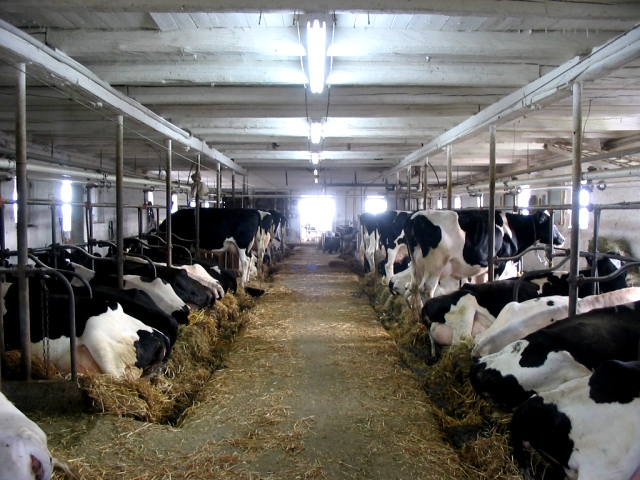Three B.C. men have been sentenced to jail time after pleading guilty to violently abusing cows at Chilliwack Cattle Sales—Canada’s largest dairy farm.
As reported in The Vancouver Sun, two workers were sentenced to 60 days in jail, to be served on weekends, and are banned from owning animals for three years. A third worker was sentenced to seven days in jail and a one-year ban on owning animals.
The cow abuse dates back to 2014, when Mercy For Animals released an undercover video exposing abuse at the farm. The footage showed workers repeatedly hitting, beating, kicking, punching, and whipping cows with chains and canes; a cow being lifted by a tractor with a chain around her neck; and workers abusing a pigeon.
Chilliwack Cattle Sales president Kenneth Kooyman and director Wesley Kooyman were fined $300,000 late last year after they pleaded guilty to several counts of animal cruelty on behalf of the dairy. Four more former workers are set to face trial, starting on Friday, May 19.
The Chilliwack case highlights a gaping flaw in Canada’s legal system: Animals on farms aren’t protected by effective oversight. Farms aren’t required to be licenced, employees aren’t required to have any training, and the government does not inspect or monitor farms for animal welfare measures.
Even when there is no overt abuse or neglect of animals, many consumers are surprised to learn that standard industry practices—which are considered legal by authorities—still involve extreme animal suffering.
For example, on dairy farms, calves are taken from their mothers at birth so the milk can be sold by the dairy industry. The baby calves are fed formula before they’re killed for veal (in the case of male calves) or used as dairy cows themselves (in the case of female calves). All dairy cows are killed when they become less profitable, at only a fraction of their natural lifespan.
Research by Animal Justice shows that more than 771 million animals were killed for food in 2016, making the treatment of farmed animals a pressing social issue.




